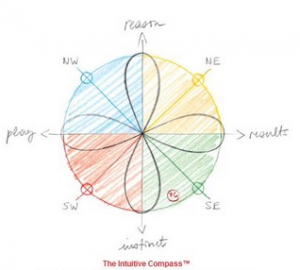 The April 2016 issue of Harvard Business Review had an interesting article, “Culture is not the Culprit”, by Jay W. Lorsch and Emily McTague. They argue that these days, changing culture is seen as the cure to all business woes when instead it’s actually process and structural levers that need to be pulled, and then the change in culture follows. We would actually argue, both from our own experience and the examples that were presented in the article, the process and structure levers that were pulled came from a different cultural mindset. These CEOs were signaling a culture change implicitly rather than explicitly, but it remains a culture change nonetheless.
The April 2016 issue of Harvard Business Review had an interesting article, “Culture is not the Culprit”, by Jay W. Lorsch and Emily McTague. They argue that these days, changing culture is seen as the cure to all business woes when instead it’s actually process and structural levers that need to be pulled, and then the change in culture follows. We would actually argue, both from our own experience and the examples that were presented in the article, the process and structure levers that were pulled came from a different cultural mindset. These CEOs were signaling a culture change implicitly rather than explicitly, but it remains a culture change nonetheless.
As an example, in three of the four cases studies given in the article, Ecolab, Delta, and Novartis, the authors cite different levers that were pulled in order make the company less hierarchical. These actions included decentralizing decision making power to other executives, to specific units, or to the front line. We would argue that the procedural decision to disperse power comes from a fundamental change in cultural mindset: hierarchy inhibits fluid decisions and actions in companies. Even though the decision to act and change may have come quickly and efficiently, rather than being the result of extensive offsites, the change in mindset had to come first. It then most likely had a ripple effect throughout the organizations and became recognized as part of the culture.
We have found in our own business and consulting, that hierarchy is a hindrance rather than a necessity, and when it can be partially removed or tempered, companies can succeed beyond expectations. What’s more, by removing the hierarchical structure we create a refreshing opening whereby energy is naturally generated. Whereas hierarchy and the traditional corporate structure are really about control, open power structures foster a culture in which people’s autonomy is encouraged and supported. When employees are offered more autonomy, they naturally function at a much higher level with less supervision. This is really the future, because it creates an atmosphere in which people are more likely to take risks and come up with solutions—an atmosphere suited to creativity.
We’ve used the Intuitive Compass® to create a Corporate Culture Questionnaire that is suitable for both CEOs trying to get a clearer understanding of how their company culture supports performance and for people in the process of looking for a new job who want to evaluate how well they would fit within the corporate culture of a particular company. (For those of you that need a primer on the Intuitive Compass, please click here.)
After you have assigned a score of 1 to 5 to each question (1 being the minimum and 5 the maximum), total the score of each quadrant, then divide by 5 for the average score for each quadrant.
Northeast Quadrant Questions:
- How clear are the processes that are in place to administer business?
- How efficient are these processes?
- How well organized is the business?
- How methodical is business management?
- How rationally and logically is business managed?
Southeast Quadrant Questions:
- How highly would you rate your team commitment to achieving results?
- How highly would you rate the efficiency of your company’s performance evaluation systems?
- How frequently is performance reviewed and analyzed?
- How robust are your company’s performance incentive programs?
- How well defined are your company’s parameters and criteria for the measurement of success?
Northwest Quadrant Questions:
- How much emphasis is put on strategic thinking?
- How highly would you evaluate the openness of the culture to new ideas and influences from employees?
- How highly would you evaluate the openness of the culture to new ideas and influences from outside the company?
- How easily does the company tolerate questioning of the status quo and embrace paradox?
- How effectively does the corporate culture encourage play?
Southwest Quadrant Questions:
- How well does the corporate culture support risk-taking?
- How well does the corporate culture tolerate the chaos of the creative process?
- How well does the corporate culture encourage passionate individuals?
- How much of the corporate culture is based on vibrant values and a strong sense of purpose?
- How often do meaningful rituals and symbols play an important role in the corporate culture?
For those of you who have our book, The Intuitive Compass, you can turn to page 171 to decode your results. For those of you who don’t, we will publish how to decode them next week.


